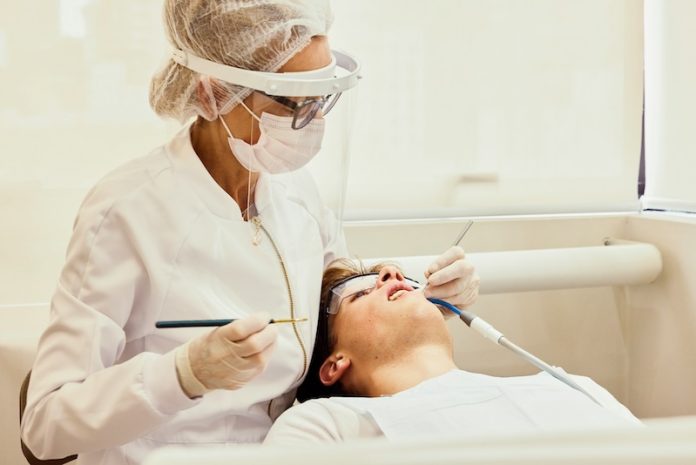
Good oral hygiene isn’t just about keeping your smile bright—it may also play a crucial role in protecting your heart.
Researchers from Tokyo Medical and Dental University (TMDU) in Japan have discovered that a common oral bacterium can affect how well the heart recovers after a heart attack.
Their study, published in the International Journal of Oral Science, uncovers a surprising connection between oral infections and heart health.
Understanding Heart Attacks
Heart attacks occur when the coronary arteries, which supply oxygen and nutrients to the heart muscle, get blocked. This blockage cuts off the heart’s blood supply, leading to the death of heart muscle cells, called cardiac myocytes.
To prevent further damage, the heart uses a process called autophagy. During autophagy, cells clear out damaged or unnecessary components to prevent dysfunction and keep the heart working properly.
The Role of Porphyromonas gingivalis
The researchers focused on a specific oral bacterium called Porphyromonas gingivalis. This bacterium is commonly found in gum disease and has been detected in people who have had heart attacks.
Yuka Shiheido-Watanabe, the lead author of the study, explained that earlier research had found traces of Porphyromonas gingivalis at the sites where heart attacks occurred, but how it affected the heart was still unknown.
Uncovering the Mechanism
To understand this, the researchers created a modified version of the bacterium that did not produce its main harmful protein, called gingipain.
Previous studies had shown that gingipain can stop cells from undergoing programmed cell death when they are injured, which is a normal part of healing.
In this study, the researchers infected heart cells and mice with both the modified bacterium and the regular version containing gingipain. They observed the differences to see how the heart cells responded.
The Findings
The results were clear: heart cells infected with the modified bacterium without gingipain were much more likely to survive compared to cells infected with the regular bacterium.
In mice, the effects of a heart attack were more severe in those infected with the regular Porphyromonas gingivalis than in those infected with the modified version lacking gingipain.
How Does Gingipain Affect the Heart?
The researchers discovered that gingipain disrupts a critical part of the autophagy process. It blocks the merging of two essential cell components, known as autophagosomes and lysosomes.
This disruption prevents the heart cells from cleaning out damaged proteins and cellular waste effectively.
In mice, this disruption led to an increase in the size of heart muscle cells and caused harmful proteins to build up inside the cells. These changes made it harder for the heart to recover and increased the risk of severe damage, including heart muscle rupture.
Implications for Heart Health
This study shows that infection with Porphyromonas gingivalis, especially when it produces gingipain, could harm the heart’s ability to heal after a heart attack.
The buildup of damaged materials inside the heart cells could lead to further cell death and worsen the damage.
The findings suggest that addressing oral infections could be a vital step in preventing severe heart problems, especially in people with a history of heart disease. Regular dental care and treatment of gum infections may help reduce the risk of complications after a heart attack.
A New Perspective on Health
This research highlights the strong link between oral health and heart health, emphasizing that taking care of your teeth and gums is about more than just appearances.
It’s a reminder of how interconnected different aspects of our health are and how small steps in one area can impact our overall well-being.
For those interested in heart health, it’s worth looking into other related studies. For instance, recent research has explored how certain diabetes medications might help in treating heart failure, or how regular exercise during middle age can reverse early signs of heart problems.
This study’s findings offer a new understanding of how oral infections can affect heart recovery, encouraging a more holistic approach to health. If you want to learn more, the full research can be found in the International Journal of Oral Science.
If you care about heart failure, please read studies about diabetes drug that could revolutionize heart failure treatment, and this drug can be a low-cost heart failure treatment
For more information about heart health, please see recent studies that exercise in middle age reversed worrisome heart failure, and results showing this drug combo can cut risk of stroke and heart attack by half.
Copyright © 2024 Knowridge Science Report. All rights reserved.



